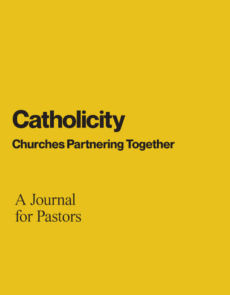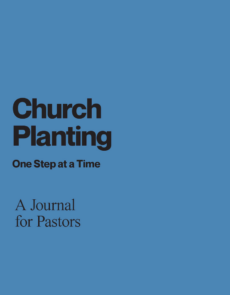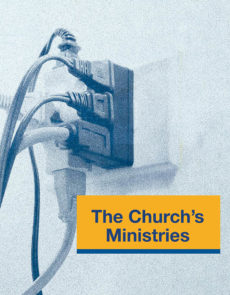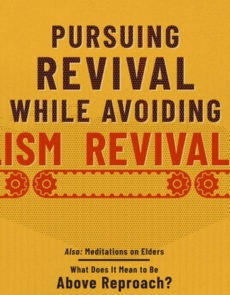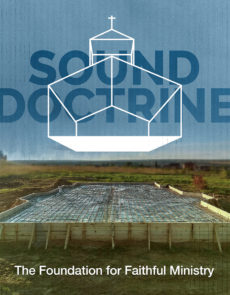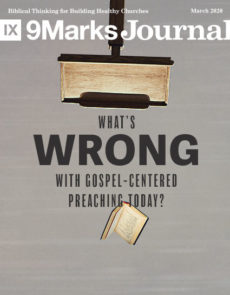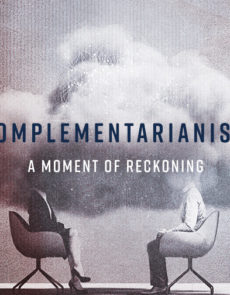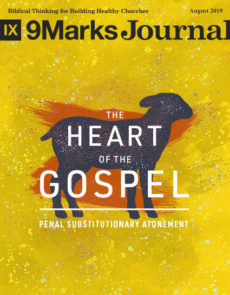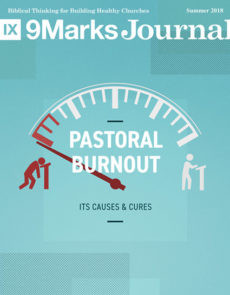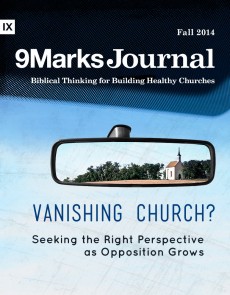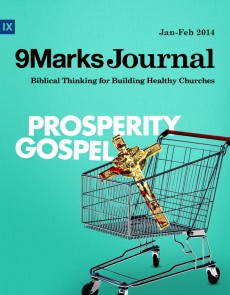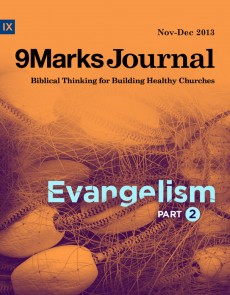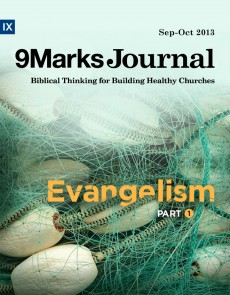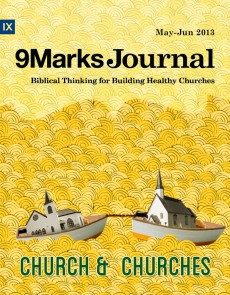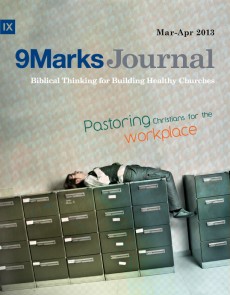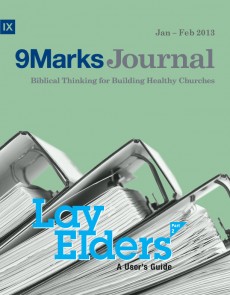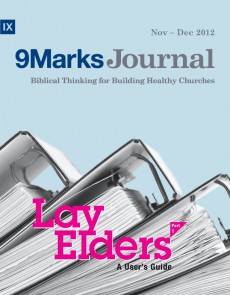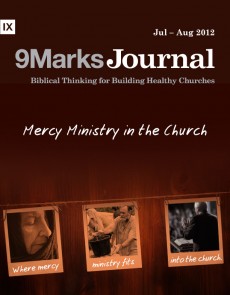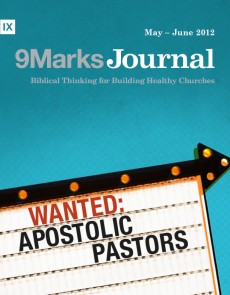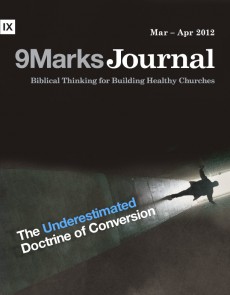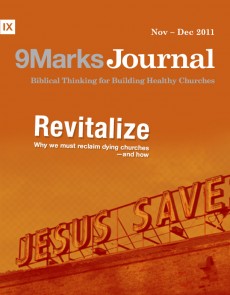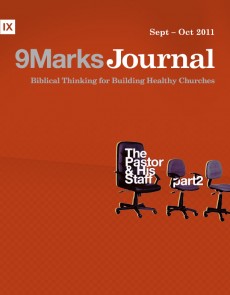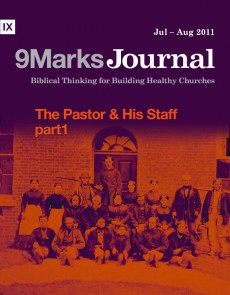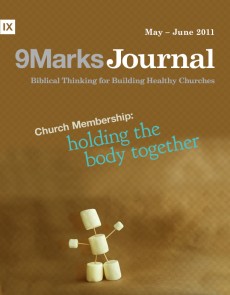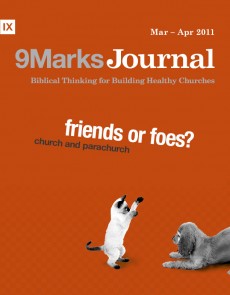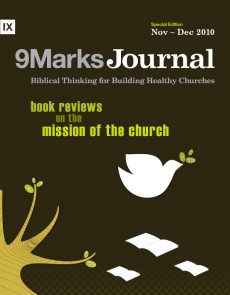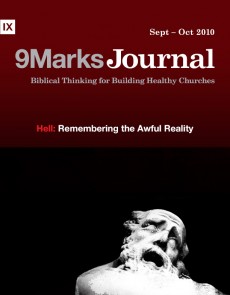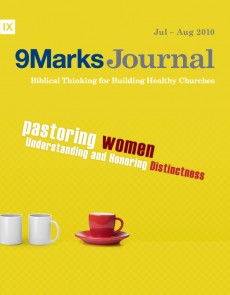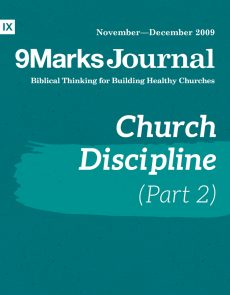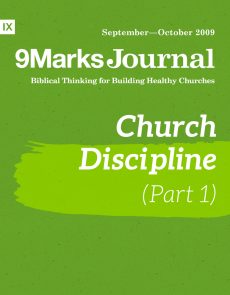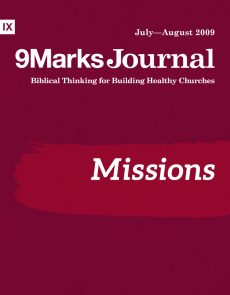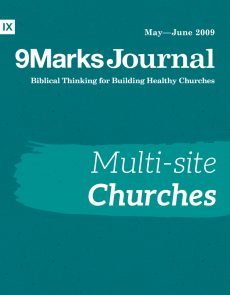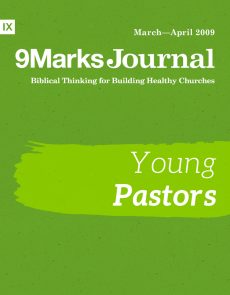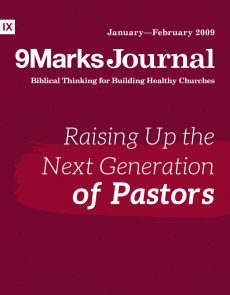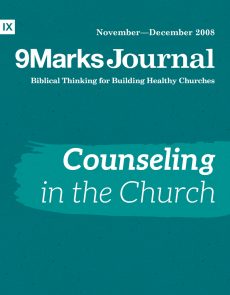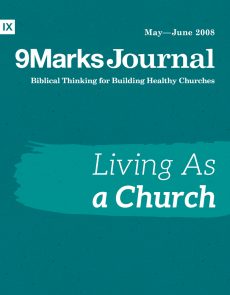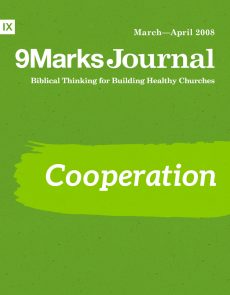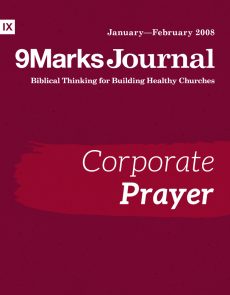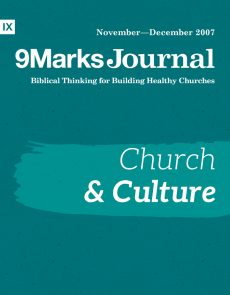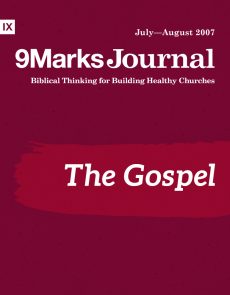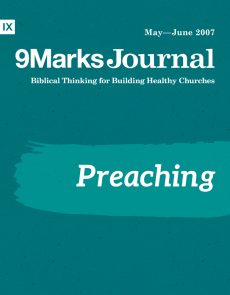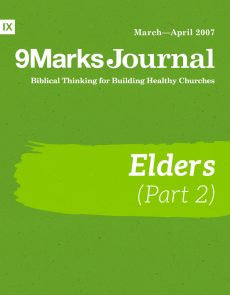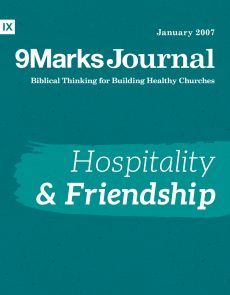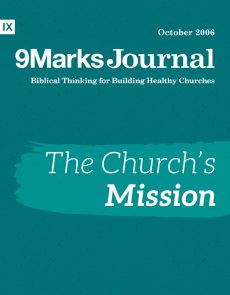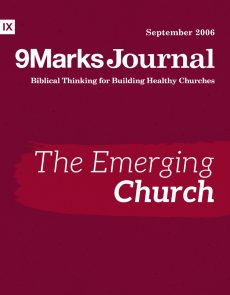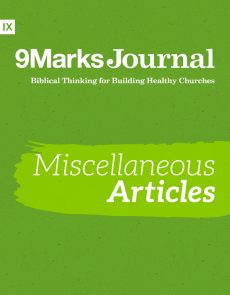
Don’t Do Weird Stuff
By Sam Emadi | 9Marks Journal: The Ordinary Means of Grace—Or, Don’t Do Weird Stuff | 07.26.2021For years, 9Marks has been standing with historic Protestantism advocating the ordinary means of grace. There’s nothing radical about this proposal.

Do Weird Stuff
By Alex Duke | 9Marks Journal: The Ordinary Means of Grace—Or, Don’t Do Weird Stuff | 07.26.2021After my first Sunday at Capitol Hill Baptist Church, I asked myself one question and one question only: “Are these people crazy?”
The Why of Ordinary Means of Grace Ministry

Liturgies Are the Pipes, But the Word Is the Water
By Matt McCullough | 9Marks Journal: The Ordinary Means of Grace—Or, Don’t Do Weird Stuff | 07.26.2021In our use of liturgy, how can we make sure our confidence is in the power of God’s Word, not the creativity or ingenuity of our methods?

Why the Ordinary Means of Grace Must Be Central in Our Gatherings
By David Strain | 9Marks Journal: The Ordinary Means of Grace—Or, Don’t Do Weird Stuff | 07.26.2021When we gather, let’s not mess around with our own homespun techniques. In faith, let us read the Word, preach the Word, pray the Word, sing the Word, and see and taste and touch the Word.

Why Preaching Is Primary and the Ordinances Aren’t
By Jonty Rhodes | 9Marks Journal: The Ordinary Means of Grace—Or, Don’t Do Weird Stuff | 07.26.2021Still today it is through the Word, not the bare ordinances, that men and women are “born again, not of perishable seed but of imperishable, through the living and abiding word of God” (1 Pet. 1:23).
The How of Ordinary Means of Grace Ministry

How Programs Fit into an Ordinary Means of Grace Ministry
By Mike McKinley | 9Marks Journal: The Ordinary Means of Grace—Or, Don’t Do Weird Stuff | 07.26.2021Our programs are helpful only to the extent that they put people in contact with the God-ordained means of grace.

How A Good Desire for Church Growth Can Lead to Bad Ministry Practices
By Pastor Harshit | 9Marks Journal: The Ordinary Means of Grace—Or, Don’t Do Weird Stuff | 07.26.2021The desire for numeric growth, in turn, leads many pastors to constantly look for growth strategies that undermine the ordinary means of grace.

Good News, Ordinary Pastor! You Don’t Need a Winning Personality
By Dan Miller | 9Marks Journal: The Ordinary Means of Grace—Or, Don’t Do Weird Stuff | 07.26.2021The good news for the unspectacular pastor is this: “winning personality” is not found in the list of pastoral qualifications in 1 Timothy 3 or Titus 1.

Are Buildings Essential to Building Healthy Churches?
By Adam Sinnett | 9Marks Journal: The Ordinary Means of Grace—Or, Don’t Do Weird Stuff | 07.26.2021Are buildings essential to building healthy churches? No. Can they be incredibly helpful? Absolutely.

Congregational Singing: Can Musical Style Dilute This Ordinary Means of Grace?
By Neal Woollard | 9Marks Journal: The Ordinary Means of Grace—Or, Don’t Do Weird Stuff | 07.26.2021Creativity matures beyond self-expression to humble service to all. This shift should be evident.
The Effects of Ordinary Means of Grace Ministry

Yes, Scripture Reading Really Does Change People
By Terry Johnson | 9Marks Journal: The Ordinary Means of Grace—Or, Don’t Do Weird Stuff | 07.26.2021Why don’t evangelical churches read the Bible during their services?

Yes, The Ordinances Really Do Change People
By Tiago Oliveira | 9Marks Journal: The Ordinary Means of Grace—Or, Don’t Do Weird Stuff | 07.26.2021Yes, the ordinances really do change people. But faith must come first.

Yes, Preaching Really Does Change People
By Mike Bullmore | 9Marks Journal: The Ordinary Means of Grace—Or, Don’t Do Weird Stuff | 07.26.2021God has promised that through this apparently weak and frail means, using weak and frail creatures like us, he will accomplish much. He has said so. He has promised to do it. Believe what God has said.

Yes, Singing Really Does Change People
By Shai Linne | 9Marks Journal: The Ordinary Means of Grace—Or, Don’t Do Weird Stuff | 07.26.2021When I was converted to Christianity as an adult over twenty years ago, I vividly recall my first Sunday at my mother’s church.

How I Accidentally Stumbled Across—And Then Fell in Love with—the Ordinary Means of Grace
By Alex Duke | 9Marks Journal: The Ordinary Means of Grace—Or, Don’t Do Weird Stuff | 07.26.2021This ordinary man and his ordinary sermons brought extraordinary change to my ordinary life.

Never Underestimate the Value of Ordinary, Brief, Christian Conversations
By Caleb Greggsen | 9Marks Journal: The Ordinary Means of Grace—Or, Don’t Do Weird Stuff | 07.26.2021We overlook the value of ordinary, brief, Christian conversations.

Between Sundays: Life in the Means of Grace
By Raymond Johnson | 9Marks Journal: The Ordinary Means of Grace—Or, Don’t Do Weird Stuff | 07.26.2021With ten minutes to spare, David sat down in the pew that had become his usual spot—the top right balcony.

The Freedom that Comes from Being Boringly Biblical
By Eric Bancroft | 9Marks Journal: The Ordinary Means of Grace—Or, Don’t Do Weird Stuff | 07.26.2021Pastor, there’s freedom in a simple philosophy of ministry. God hasn’t called you to creativity, or outpacing expectations.

“The Word Did It All”: The Necessity of Preaching According to the Protestant Reformers
By Shawn Wright | 9Marks Journal: The Ordinary Means of Grace—Or, Don’t Do Weird Stuff | 07.26.2021In the Reformation, the Word did it all. Five hundred years from now, may that be said of your ministry and mine.

Free Download
PDF, ePub, and Kindle files will be sent to this email address. As part of our community, you will receive content & communication from 9Marks. You may unsubscribe at any time.
Support 9Marks
Our work is possible by the generosity of our readers. Give Today










